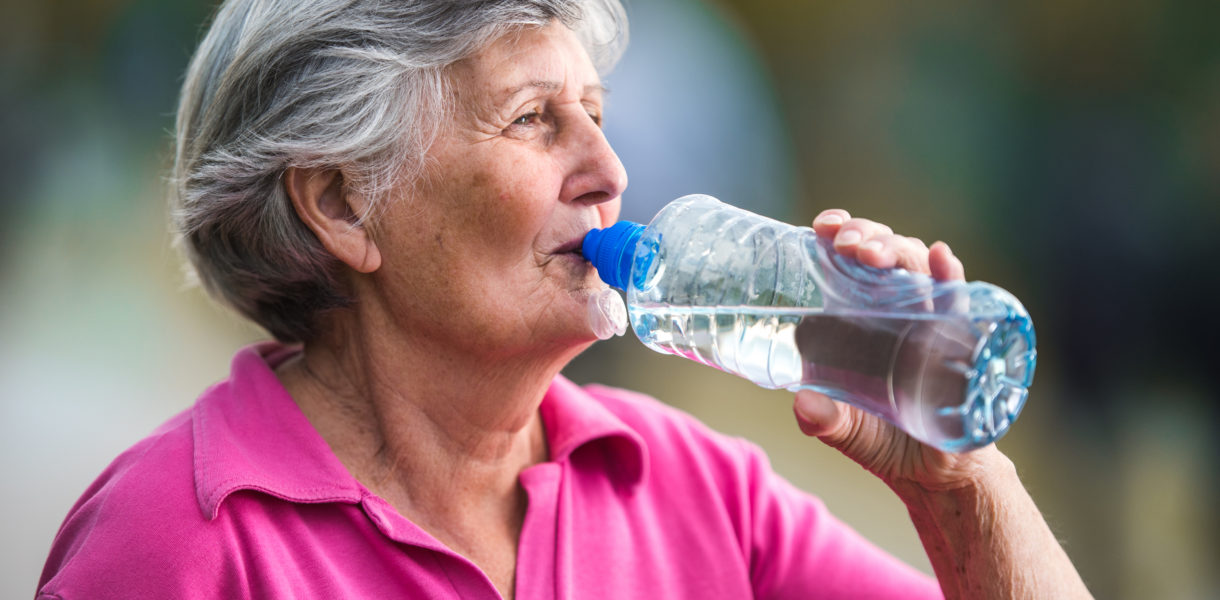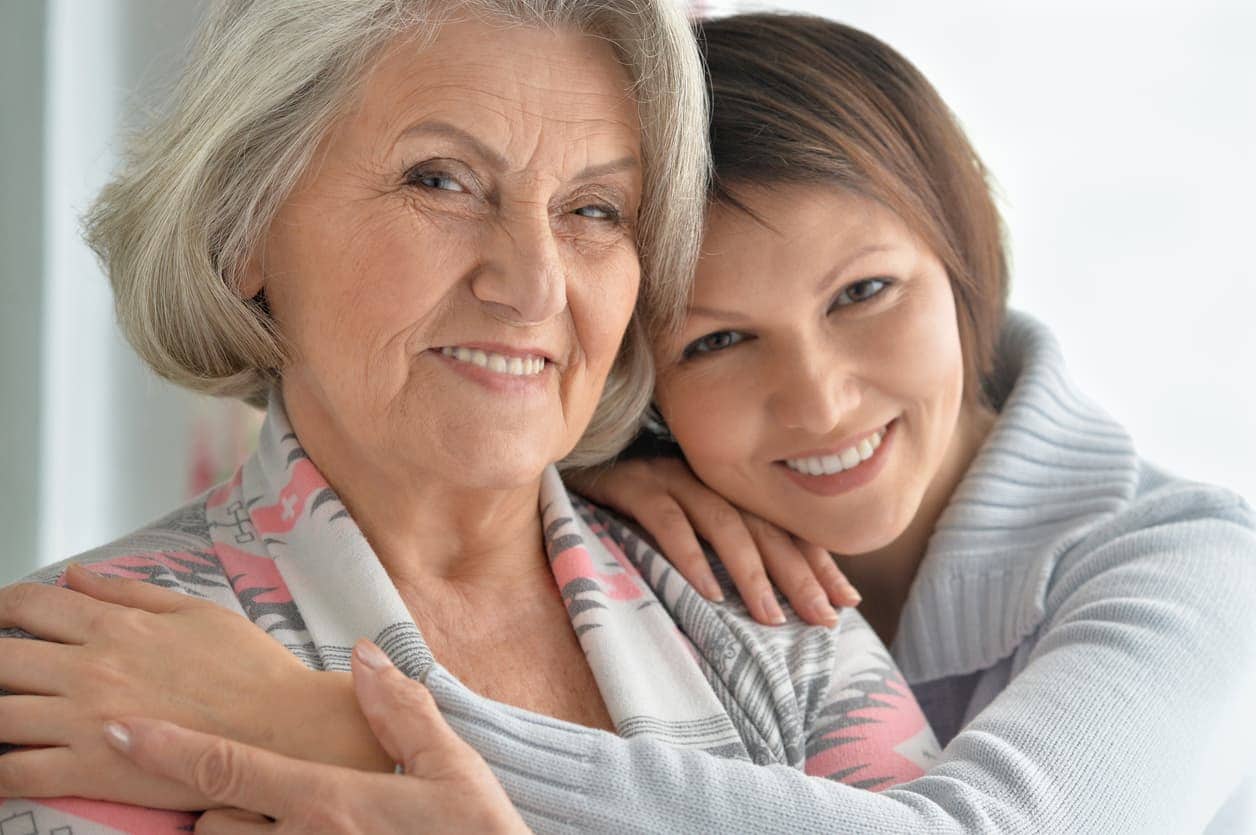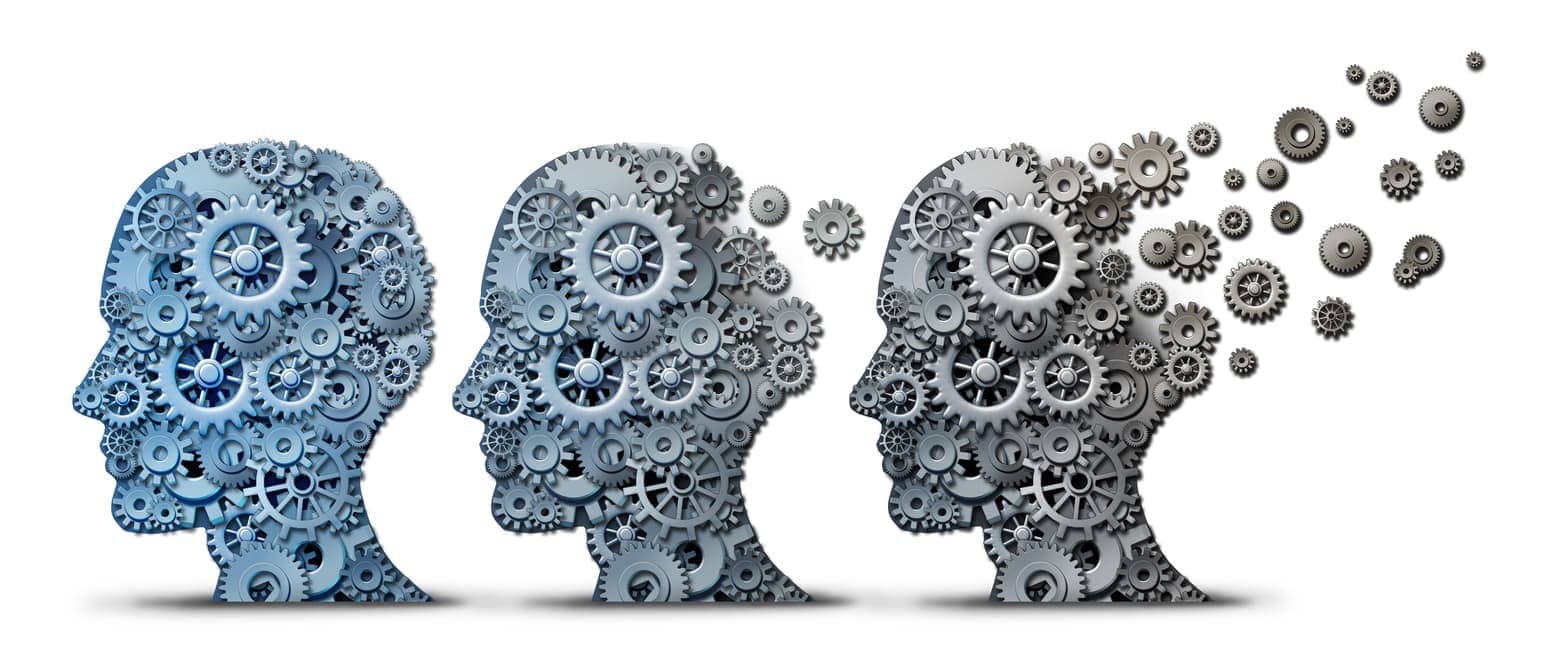
How to keep your loved one safe with hydration
Seniors are more susceptible to dehydration due to a number of factors. Per an article by NPR, we naturally lose water as we age. At birth, our bodies are made up of about 75% water, but by the time we’re elders, our body makeup decreases to about 50% water.
Along with this fact, you may notice that your loved one doesn’t always feel as thirsty, therefore inadvertently not drinking enough fluids during the day. The National Library of Medicine says, “Elderly individuals are prone to dehydration as a result of blunted thirst sensation.” Other factors, like blood pressure and heart medications and fears of falling when going to the restroom in the middle of the night, contribute to a lack of sufficient hydration for seniors.
The UCLA School of Nursing recently conducted a study reporting that “up to 40 percent of community-dwelling elderly people may be chronically underhydrated, which can lead to more severe dehydration and ultimately life-threatening infections and other health problems.”
It’s important for the aging population to stay hydrated, so here are some commonsense tips that’ll help your loved one drink more water throughout summer and into fall.
Keep a full water bottle within your senior’s reach.
You may want to invest in a reusable water bottle with reminder markers that state the hours in the day or inspire your loved one with fun quotes. If replenishing them each day is a struggle, set aside a week’s worth in your senior’s fridge and label individual water bottles with the day of the week. Ask their care team to help you make this happen.
According to the National Council of Aging, older adults are at a higher risk for dehydration due to the body not regulating temperature like it once did.
Remind your loved one to drink throughout the day and to finish that day’s water bottle a few hours before bedtime. You can even give them a specific time, like 6:00 PM, to have emptied their bottle (and then later their bladder!).
If possible, get them in the habit of keeping their water close throughout the day. If they tend to forget their drink in another room, keep several water bottles in different rooms for your senior to easily access. Place bottles here:
- Kitchen table
- By coffee machine
- Fridge
- Bedroom
- Living room
- Near front door
- Near back door
- By their purse or wallet
- Sunroom
Place colorful signs or notes throughout their home.
Put a note on their nightstand, eyeglass case, the kitchen counter, the fridge, and by the remote control that says, “Drink some water.” Remind your loved one to take a few sips every time they see those notes.
For added flavor, drop their favorite fruits in the bottom of your bottle to make fruit-infused water. Here are some suggestions:
- Blueberries
- Raspberries
- Strawberries
- Cucumber slices
- Lemon or lime wedges
- Apple slices
Request hydration stations at your loved one’s community.
Nashville elder care physical therapy assistant, Jennifer M., says, “Make fresh water available within reach with verbal reminders.”
Suggest water dispensers in common areas like activity rooms, lobbies, fitness areas, patios, and dining venues. If your loved one isn’t getting enough liquids, ask staff members to help them keep that priority top-of-mind each day. Our memory care team know this is very important and will be happy to assist with your needs.
Keep fresh fruits and vegetables readily available.
Adding more fruits and vegetables to your senior’s diet is a great way to increase water intake. Ask caregivers to help you devise a meal plan and grocery lists for your loved one. Some low-maintenance soft fruits to include:
- Bananas
- Sliced peaches
- Baked apples
- Mixed fruit cups
- Blueberries, raspberries, strawberries, and blackberries
- Seedless grapes
- Fruit salad
- Cherry tomatoes
- Watermelon chunks
- Cantaloupe slices
To add more water through veggies, try:
- Green beans
- Baked carrots or shredded out of the bag
- Radishes
- Celery
- Spinach
- Cucumbers
- Boiled cabbage
- Steamed broccoli
Try these ideas at mealtime:
- Salad with plenty of fresh greens
- Lettuce wraps
- Applesauce
- Cottage cheese (80% water content!)
- Smoothies
- Low sodium summer soups
- Fruit juice
- V8 juice
- Coconut water
- Gatorade
- Pedialyte Freezer Pops
- Protein shakes for seniors
Provide iced coffees or chai lattes.
According to the US News health advocates, iced coffee is more hydrating than some people think. If your loved one needs a morning or afternoon boost, get a cold brewed coffee with plenty of ice. While coffee and tea have a slight ability to dehydrate, there’s still a health benefit from the partial water content. Just don’t depend on coffee drinks as your senior’s only water source.
Stay in the shade.
Being outside in the heat and humidity can cause our bodies to lose fluids quickly. Have caregivers set a timer on your senior’s wristwatch or phone to remind them to come back inside. Also, ask the care team to offer a bottle of water to seniors going outdoors for a walk or evening meal.
Other ways to keep seniors hydrated:
- Wearing moisturizing sunscreen lotion
- Walking with an umbrella or parasol
- Wearing a sun hat
- Dressing in light colors and airy fabrics (Darker colors attract more sun.)
- Accompanying your senior outside or having a caregiver stay with them, especially if the weather becomes too humid or hot
Suggest ice chips.
Cold treats are the best during the summer months! A quick hydration fix is to nibble on ice chips. Pour a bunch in a cup and keep your senior cool.
Fruity popsicles, slushies, and ice cream treats also help to beat the heat. However, some ice cream can make us thirsty again, so serve water alongside frozen snacks.
Balance alcohol and caffeine consumption with water.
If your loved one likes a glass of wine with friends, tell them to always take a sip of water after each sip of their beverage. Also, encourage them to finish their water glass before leaving the table. If you can’t always be with your senior relative, investing in a Fitbit watch will help with hydration by alerting them to drink water every hour or so.
Conclusion
If drinking more water is challenging for your family member, ask those on their care team to help you reach those hydration goals. Avalon Memory Care is equipped with therapists, practitioners, and staff who specialize in senior healthcare needs, like staying hydrated. For more information about our caring community, call us at (972) 364-4755.
Links:
https://www.ncbi.nlm.nih.gov/pmc/articles/PMC4860410/
https://www.greatseniorliving.com/articles/dehydration-in-elderly#common-among-seniors
https://newsroom.ucla.edu/releases/study-finds-a-lack-of-adequate-hydration-among-the-elderly
https://www.ncoa.org/article/how-to-stay-hydrated-for-better-health
See More Articles
- Understanding Parkinson’s Disease and Dementia
Parkinson’s disease is an incurable neurological disorder, with progressively worsening complications. Perhaps the most well-known symptom of Parkinson’s is a hand tremor, but it can also cause speech changes, muscle rigidity, and impaired posture. Eventually, as the disease progresses, more than half of all individuals with Parkinson’s will require dementia care. This particular type of
- The Long Goodbye: Understanding Anticipatory Grief and Dementia
When you have a family member who is suffering from dementia, it’s not unusual to find yourself experiencing sharp and sudden emotions. The gradual loss of a loved one is, in many ways, comparable to experiencing the death of someone close to you. With progressive dementia, this sense of loss is accompanied by another emotion
- Hope For the Future: Emerging Alzheimer’s Research
According to the latest statistics, as many as 5.5 million Americans are living with Alzheimer’s disease, and its prevalence is only expected to rise in the next few decades. At the same time, however, research into treatments for the condition is accelerating. With every passing year, we move a little further down the road toward
Testimonials
Downloadable Resources
We Are Avalon
Discover the heart of our community; download ‘We Are Avalon’ to get to know our dedicated team and our commitment to providing a warm, family-like environment.
Transitional Care Guide
If you’re considering a transition, we’re here to help; download our Transitional Care Guide for compassionate guidance through each step of the process.
Schedule a Tour
Visit one of our 30+ campuses and experience our unique approach to memory care.












